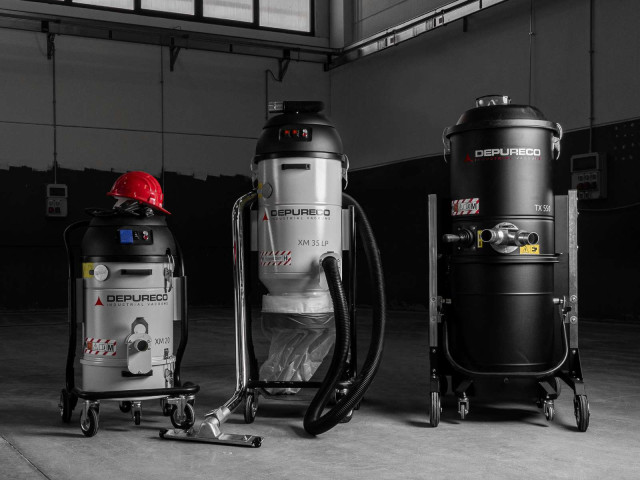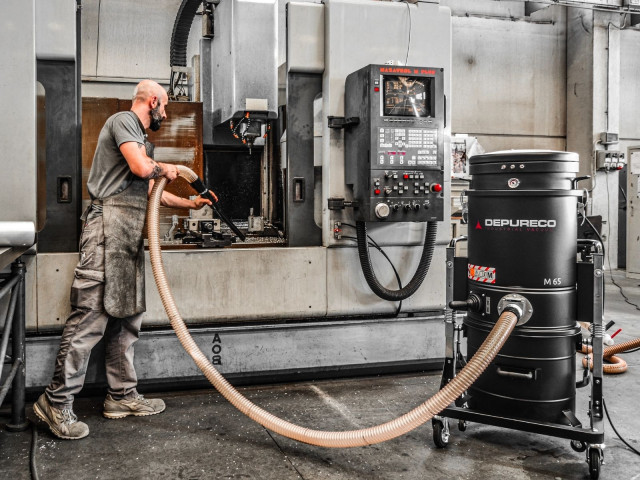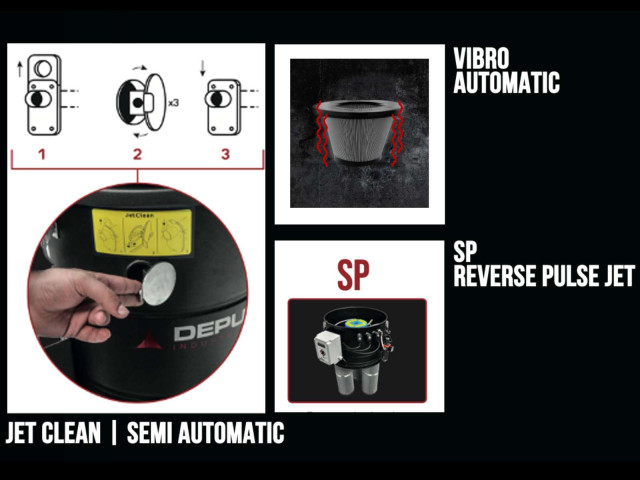Fine dust vacuuming
Industrial vacuuming is a key element in ensuring cleanliness and efficiency in working environments. Dust, solids, liquids, and waste are indeed a common problem in industry, especially in sectors such as woodworking, cement and ceramic production, metallurgy, and mechanical engineering. Managing these waste materials is critical to ensuring a safe and clean work environment, and to maintaining high standards of efficiency and productivity.
Why use an industrial vacuum cleaner in your production?
A fine dust vacuum cleaner can be the ideal solution for cleaning and maintenance tasks in workplaces. A dry bagless vacuum cleaner offers many advantages:

Increased cleanliness
By keeping the work environment clean, machinery and equipment can operate at peak efficiency, reducing downtime and increasing product quality.

Increased safety
A clean and fine dust-free environment reduces the risk of workplace accidents such as fires and respiratory problems among workers.

Increased productivity
Cleaner work areas result in fewer accidents, interruptions and downtime, increasing their productivity.
How to choose a vacuum cleaner for your needs
Several aspects must be considered when choosing an industrial vacuum cleaner for your production:
- The type of dust or material to be vacuumed: some vacuum cleaners are specific for particular types of dust, such as toxic or combustible dust. The type of filtration installed should be related to the particle size characteristics of the dust to ensure that cleaned air is returned to the work environment
- The function it will have to perform: should the industrial vacuum cleaner occasionally clean the work environment or work continuously on production lines? What does the material to be vacuumed look like?
- The size of the working area: the vacuum cleaner must be able to cover the entire area and operate in tight or narrow spaces if necessary. In the case of large rooms, dust management will be easier with the installation of a centralized vacuum system capable of conveying the material.
From these evaluations, the features needed to maximize the efficiency and effectiveness of the industrial vacuum cleaner can be decided:
Suction unit
The power and airflow rate of the vacuum cleaner must be matched to the specific needs of the task to ensure adequate suction performance. Otherwise, the vacuum cleaner will not be able to do the job effectively and quickly.

Filter cleaning system
The filter cleaning system also plays an important role in the choice of vacuum cleaner, because it will allow the suction performance to be kept at the appropriate level and the work to be interrupted as few times as possible, effectively reducing the time needed for cleaning and maintenance operations.


